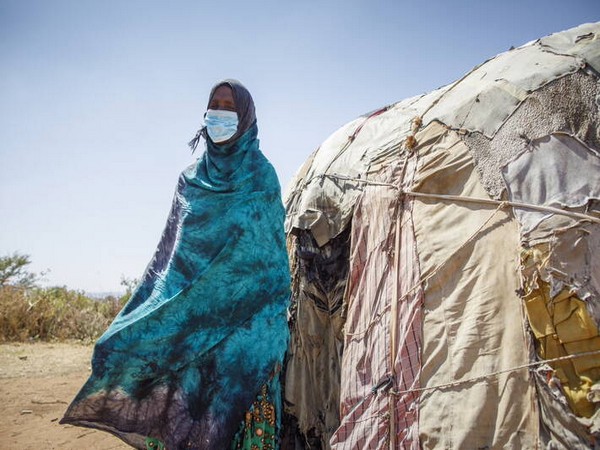IOM and WFP partner to improve food security in Libya with EU support
This partnership comes as part of a broader EU project, “Protecting most vulnerable populations from the COVID-19 pandemic in Libya”.

- Country:
- Libya
With support from the European Union (EU), the International Organization for Migration (IOM) and the United Nations World Food Programme (WFP) have partnered to help improve food security and nutrition for vulnerable communities, including migrants, affected by COVID-19 in Libya.
This partnership comes as part of a broader EU project, “Protecting most vulnerable populations from the COVID-19 pandemic in Libya”. As part of this €20 million programme funded by the EU, IOM and WFP are providing ready-to-eat food assistance to vulnerable migrants living in urban areas, internally displaced persons (IDPs), returnees and host communities who have lost their livelihoods due to COVID-19.
There are around 700,000 people in Libya who are in need of food and livelihood assistance, including 123,000 migrants and 76,000 displaced persons, according to the Libya Food Security Sector, co-led by WFP.
More than a year into the pandemic, the situation for vulnerable populations in the country continues to be particularly alarming as they remain at higher risk of contracting the virus, due to the socio-economic impacts that deprived them of livelihoods.
“The COVID-19 pandemic has severely aggravated the already difficult living conditions of many people in Libya – both Libyans who had been affected by conflict and the many migrants in the country, as well as their host communities. Providing food and most basic support to these most vulnerable people is an important aspect of our partnership with Libya in responding to the global coronavirus crisis,” said EU Ambassador to Libya José Sabadell.
“This assistance comes at a critical point for many vulnerable migrants who have been impacted by both the increased prices of essential commodities, including food and limited or loss of income due to the lack of employment opportunities,” said IOM Libya Chief of Mission Federico Soda.
“Since the beginning of 2021, when the Libyan government introduced a new unified exchange rate, migrants’ living conditions have become increasingly challenging as the prices of some imported goods such as vegetable oil and milk have increased by 60 percent.”
Cost and affordability of food and other core items remain the main obstacle for migrants in Libya, the latest IOM-DTM Migrant Report found, while many of them have poor or borderline food consumption, which is a precondition for a weaker immune system. A joint IOM-WFP assessment is currently ongoing to shed more light on the food security status of migrants in Libya.
“We are grateful for the EU’s strong partnership and commitment to supporting the most vulnerable migrants in Libya who simply cannot afford to meet their basic food needs,” said WFP Representative and Country Director in Libya Rawad Halabi. “As soaring prices push a basic meal beyond the reach of many, a coordinated response is required now more than ever to prevent an alarming deterioration in food security and stop people sinking deeper into poverty and hunger.”
During the two-year-long project, IOM’s Migrant Resource and Response Mechanism (MRRM) mobile teams will provide emergency food assistance kits, supplied by WFP, to vulnerable migrants in Algatroun, Bani Waleed, Benghazi, Ghat, Sabha, Tripoli and Zwara.
Food kits contain essential ready-to-eat items such as canned beans, tuna, and Halawa that will last over a month.
(With Inputs from APO)
- READ MORE ON:
- Rawad Halabi
- WFP
- Libya
- COVID-19
- food security
- José Sabadell
ALSO READ
Russian Military Maneuvers: Cargo Planes Depart for Libya Amidst Syrian Turmoil
WFP delivers aid to over 800,000 in Sudan
WFP delivers aid to over 800,000 in Sudan's hunger hotspots
Libya Joins Afreximbank as 53rd Member State: Boosting Intra-African Trade and Economic Integration
Tragedy in Blue Nile: WFP Staff Killed in Sudan Strike










